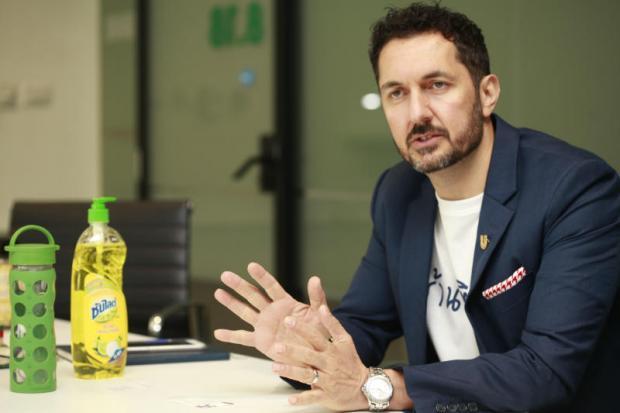
Despite mounting political uncertainty and potential harm to domestic consumption, Unilever Thailand's chief executive believes the market for consumer goods will remain robust.
"I don't think there's been a better time to be in consumer products," said Robert Candelino, chief executive of Unilever Thailand. "We affect the lives of every single person in the country and that means we have to step up and take responsibility for things like sustainability."
Delays in forming a government have slowed state investment and risked political strife in the country, with some experts predicting consumer spending may take a hit in 2019. In March, Thailand's consumer spending index dropped to its lowest point this year.
"I'd be lying if I said we weren't preparing for instability, but that's reasonable for a business," he said. "We have commercial, personal, community and societal responsibilities as an organisation. Whatever the causes of instability, we have to be prepared for impacts on different segments of society."
Mr Candelino said Thais use Unilever products on average three times a day, which encompasses a variety of brands such as Dove, Magnum, Surf and Sunsilk.
The company has been in Thailand since 1932 and operates seven manufacturing facilities in the country. Around 90% of products meant for the Thai market are made domestically. Unilever has several thousand employees in Thailand and prides itself for having a gender-balanced management and leadership team.
"Thailand is one of the great economic systems in the world," he said. "Big Western and Asian companies can come to Bangkok and compete in one big local market."
Mr Candelino said in 2018 Unilever had its best year in five years and the momentum of its business is increasing. The company acquired dozens of brands over the past few years and is looking for more businesses in Southeast Asia to expand the scope of its operations.
"We are extremely pleased with the momentum of our business, but it isn't just about what's happening commercially with our business," he said.
"Our view is that brands with purpose grow, people with purpose thrive and companies with purpose last. That's why we make long-term decisions about investments, people and brands."
At the forefront of this purpose is the company's push for sustainability. Unilever is pushing programmes to raise awareness about plastic use in the country and has banned all single-use plastic products in its office. One of its flagship products, Sunlight liquid dish soap, is made with 100% post-consumer, recycled plastic.
"I think our short-term successes and the long-term picture are proof that our push for sustainability is the right path," said Mr Candelino. "Two years ago no one was talking about reducing plastic waste, but now you see every store and government official raising the issue."
Since 2013 Unilever has been using 100% sustainable palm oil, following public criticism of its contribution to deforestation in Indonesia. The initiative was part of Unilever's wide-ranging 2010 sustainability plan, which assigned sustainability goals over 10 years.
He said the company is on track to meet all its commitments by the programme's conclusion in 2020. As part of the plan Unilever was able to reduce CO2 emissions per tonne of production by 52% globally since 2008 and reduced water usage by factories by 4.4% per tonne of production.
"In 2010, those goals were seen as radical and massively transformational, and we didn't have all the answers," said Mr Candelino. "But we had an ambition and a belief that we had a leading role to play in tackling these issues."







